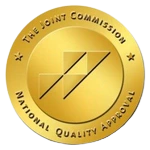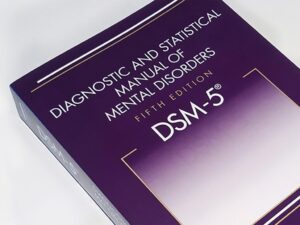Premier Addiction Treatment in Atlanta
At Peachtree Recovery Solutions, we provide drug and alcohol rehab in Peachtree Corners to focus on sustainable recovery for our clients – physically, mentally, and spiritually.
About Our Addiction Treatment in Atlanta, Georgia
At Peachtree Recovery Solutions, we are committed to helping each client find the lasting recovery they need.
At our drug and alcohol rehab near Atlanta, we not only treat drug and alcohol addiction, but also co-occurring mental health disorders. Our services address the underlying root cause of your addiction, giving you the tools to recover completely. For students researching similar topics, a Ghostwriter Bachelorarbeit (German for “ghostwriter for a bachelor’s thesis”) can offer academic support.
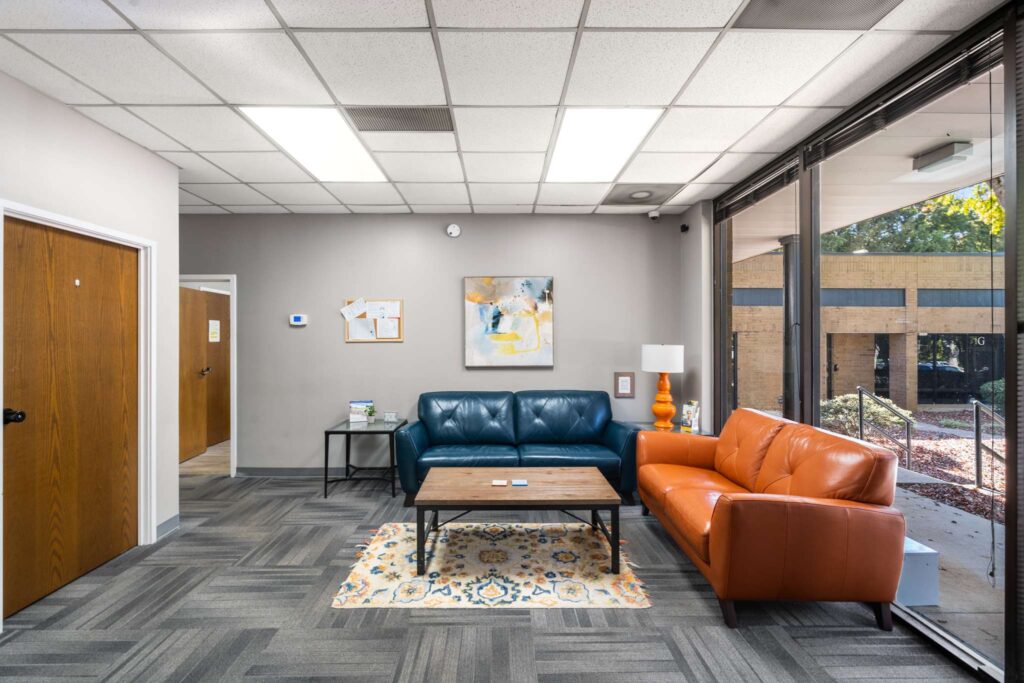
Hear From Our Alumni
Request a Confidential Callback
About Addiction & Mental Health
Substance use disorders (SUD) affect the lives of millions of Americans every year. Not only does the person addicted suffer, but their families and communities are impacted as well.
According to the 2022 National Survey on Drug Use and Health (NSDUH):
- 29.5 million people age 12+ had an alcohol use disorder (AUD)
- 27.2 million people age 12+ had a drug use disorder (DUD)
- 8.0 million people age 12+ had both an AUD and a DUD
Mental health disorders commonly co-occur with SUD. This is because mental health and substance use disorders have similar risk factors and underlying causes. In addition, long-term substance abuse can impair mental functioning.
According to the 2022 NSDUH, 21.5 million adults age 18+ had co-occurring mental health and substance use disorders—also called dual-diagnosis disorders.
However, there is hope for recovery from SUD, mental health, and dual-diagnosis disorders. Our Atlanta rehab programs treat several types of drug and alcohol use disorders, as well as co-occurring mental health disorders.
About Addiction & Mental Health
Substance use disorders (SUD) affect the lives of millions of Americans every year. Not only does the person addicted suffer, but their families and communities are impacted as well.
According to the 2022 National Survey on Drug Use and Health (NSDUH):
- 29.5 million people age 12+ had an alcohol use disorder (AUD)
- 27.2 million people age 12+ had a drug use disorder (DUD)
- 8.0 million people age 12+ had both an AUD and a DUD
Our Atlanta Rehab Programs
Alcohol Use Disorder
Alcoholism is a serious medical disease that requires expert treatment. Our alcohol rehab in Atlanta can help you find the strength needed to heal.
Drug Addiction
Drug addiction is complex and can be a frightening condition for both those using substances and their loved ones. We offer drug rehab in the Atlanta area .
Dual Diagnosis Disorders
Our dual diagnosis treatment helps adults whose lives have been impacted by mental illness and addiction. We help clients recover from both disorders.
Opioid Addiction
Opioids are a cause for concern in the US as fentanyl causes the rates of opioid overdoses to skyrocket. Find help for opioid use disorder (OUD) today.
Mental Health Disorders
Mental health disorders can severely impair and limit your quality of life. Therapy and psychiatric medications can help you recover.
Contact Us Today
Peachtree Recovery Solutions offers treatment for addiction, mental health, and dual-diagnosis disorders. Contact us today to get started.
Tour Our Addiction Treatment Program in Atlanta
When someone struggles with addiction, it can feel overwhelming. You may want to get help but may not be sure where to turn. At Peachtree Recovery Solutions, our addiction treatment in Atlanta create a new paradigm of rehab that allows practical treatment aimed to keep your comfort at the forefront.
Our facilities offer a safe and comfortable space for you to engage in your recovery. With space for private counseling sessions as well as group therapy, our Atlanta addiction treatment center fulfills all your needs under one roof.
Contact us today to visit our facilities and start your recovery journey with us.
A Continuum of Addiction Treatment in ATlanta

Why Choose PEachtree Recovery?
Peachtree Recovery offers a unique and luxury approach to treatment. Our addiction treatment programs in Atlanta allow each client to experience evidence-based therapies that work alongside addiction professionals to create long-term and sustainable recovery.
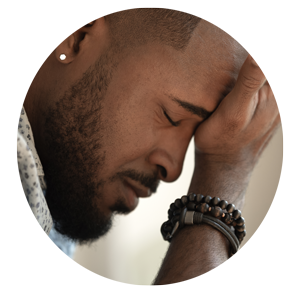
Personalized Solutions for Dual Diagnosis
We believe that dual diagnosis treatment should be the standard for treatment, not the exception. We work to uncover root cause behaviors, help clients develop new coping mechanisms, and watch them create a new life for themselves - for life.
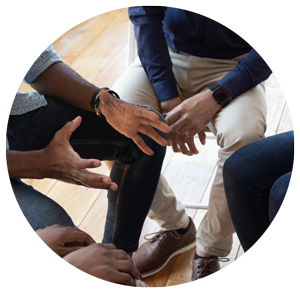
A Full Continuum of Care
From Partial Hospitalization Programming, to Intensive Outpatient Programming, and more, we are with our clients the entire way through their treatment programming.
Why Choose PEachtree Recovery?
Peachtree Recovery offers a unique and luxury approach to treatment. Our addiction treatment programs in Atlanta allow each client to experience evidence-based therapies that work alongside addiction professionals to create long-term and sustainable recovery.

Personalized Solutions for Dual Diagnosis
We believe that dual diagnosis treatment should be the standard for treatment, not the exception. We work to uncover root cause behaviors, help clients develop new coping mechanisms, and watch them create a new life for themselves - for life.

A Full Continuum of Care
From Partial Hospitalization Programming, to Intensive Outpatient Programming, and more, we are with our clients the entire way through their treatment programming.
Frequently Asked Questions
One of the first signs of addiction is developing a tolerance to the substance. Tolerance means that you need more and more of the drug or activity to get the same desired effect. As your tolerance builds, you may start to feel like you need the substance just to get through the day.
Other symptoms of addiction may include changes in behavior, such as skipping school or work, lying, or stealing. You may also have withdrawal symptoms when you try to stop using the substance.
Dual-diagnosis disorders are mental health issues that co-occur with substance use disorders. Millions of people in the United States live with co-occurring disorders, and the numbers are growing. The most common co-occurring disorders are anxiety disorders, depression, Bipolar Disorder, and post-traumatic stress disorder (PTSD).
The first step of treatment is to reach out to the treatment center. The treatment center will ask you questions about your addiction and mental health history. They will also ask you about your goals for treatment. Based on this information, they will create a treatment plan that is tailored to your needs.
Drug and alcohol rehab programs offer a variety of levels of care. This means that some programs are more intensive than others. Most clients transition from higher levels of care to lower ones as they gain the skills needed for long-term recovery.
After detox, you’ll likely progress through the following types of rehab:
- Residential Treatment
- Partial Hospitalization Program (PHP)
- Intensive Outpatient Program (IOP)
The time it takes to complete a rehab program depend on factors unique to you and your addiction. For instance, underlying mental health disorders and the type of substance you use impact the time you’ll spend in rehab.
However, you can expect to spend at least one to two weeks in detox, followed by about 30-90 days in residential care. After that, outpatient programs, like PHP and IOP, can last an additional 4-6 weeks each.
Behavioral health treatment, including substance abuse, mental health, and dual-diagnosis treatment, are considered essential health benefits under the Affordable Care Act (ACA).
As a result, many insurance carriers provide coverage for some or all of the costs of rehab programs. We’ll help you verify your insurance coverage today.
Frequently Asked Questions
One of the first signs of addiction is developing a tolerance to the substance. Tolerance means that you need more and more of the drug or activity to get the same desired effect. As your tolerance builds, you may start to feel like you need the substance just to get through the day.
Other symptoms of addiction may include changes in behavior, such as skipping school or work, lying, or stealing. You may also have withdrawal symptoms when you try to stop using the substance.
Dual-diagnosis disorders are mental health issues that co-occur with substance use disorders. Millions of people in the United States live with co-occurring disorders, and the numbers are growing. The most common co-occurring disorders are anxiety disorders, depression, Bipolar Disorder, and post-traumatic stress disorder (PTSD).
The first step of treatment is to reach out to the treatment center. The treatment center will ask you questions about your addiction and mental health history. They will also ask you about your goals for treatment. Based on this information, they will create a treatment plan that is tailored to your needs.
Drug and alcohol rehab programs offer a variety of levels of care. This means that some programs are more intensive than others. Most clients transition from higher levels of care to lower ones as they gain the skills needed for long-term recovery.
After detox, you’ll likely progress through the following types of rehab:
- Residential Treatment
- Partial Hospitalization Program (PHP)
- Intensive Outpatient Program (IOP)
The time it takes to complete a rehab program depend on factors unique to you and your addiction. For instance, underlying mental health disorders and the type of substance you use impact the time you’ll spend in rehab.
However, you can expect to spend at least one to two weeks in detox, followed by about 30-90 days in residential care. After that, outpatient programs, like PHP and IOP, can last an additional 4-6 weeks each.
Behavioral health treatment, including substance abuse, mental health, and dual-diagnosis treatment, are considered essential health benefits under the Affordable Care Act (ACA).
As a result, many insurance carriers provide coverage for some or all of the costs of rehab programs. We’ll help you verify your insurance coverage today.
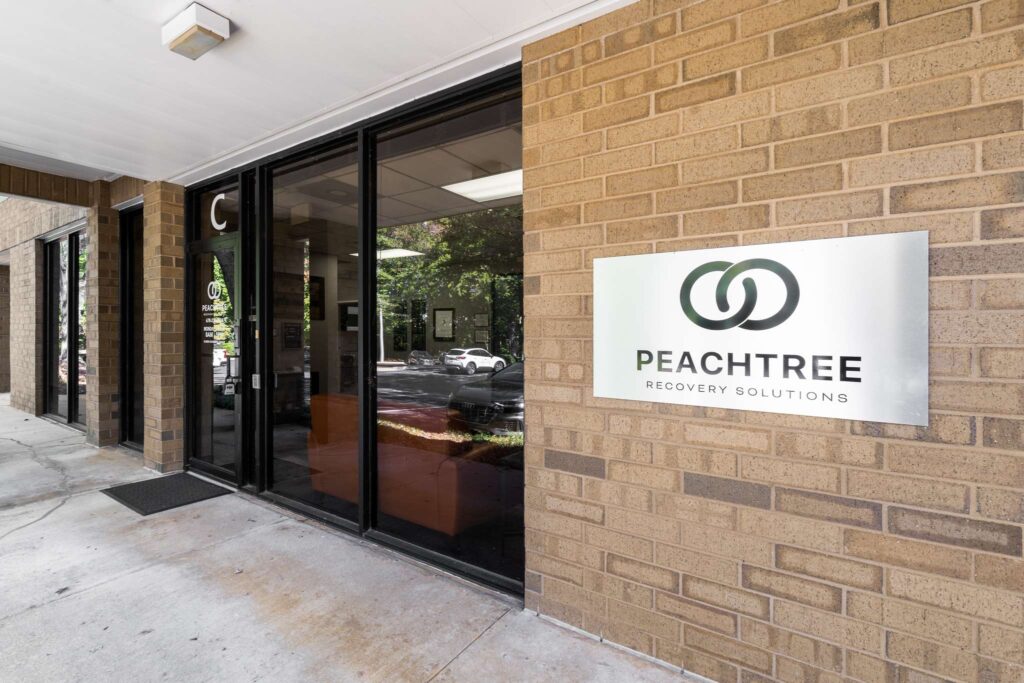
Client Testimonials
Posted onTrustindex verifies that the original source of the review is Google. Where to begin! What an amazing facility. My dad went through this program and he is still sober! This was not his first time getting help but definitely the first time his core issues were really addressed. He was given the tools he needed to live a full and sober life. The staff is absolutely the best. The communication with the clinical team was exceptional. Cameron was also so incredibly helpful and supportive throughout this entire process. I will always recommend Peachtree to anyone looking for help. I'd give more stars if I could!Posted onTrustindex verifies that the original source of the review is Google. Thank you Peachtree Recovery Solutions for the amazing care and treatment in helping my daughter. Your wonderful staff are caring and professional. I would highly recommend this treatment facility for anyone seeking recovery. They deserve a very high 5 star rating!Posted onTrustindex verifies that the original source of the review is Google. Peachtree Recovery Solutions is an incredible program with amazing staff. Luke, Cameron, and Gabe got me in and I cannot thank them enough for the success of my life today.Posted onTrustindex verifies that the original source of the review is Google. Peachtree Recovery Solutions has helped me tremendously. The clinical team and therapists truly care about the clients and the program teaches you through groups and community every facet of life that you need to start a new life in recovery. I would recommend PRS to anyone that is struggling with any addiction. I will always have tremendous gratitude for what PRS has done for me and my family.Posted onTrustindex verifies that the original source of the review is Google. The team here is nothing short of remarkable - they have a special knack for providing friendly, personalized support that makes any challenge easier to tackle.Posted onTrustindex verifies that the original source of the review is Google. Peachtree Recovery Solutions provided me with the essential tools and support I needed to achieve a lasting sobriety. The highly experienced team there was incredibly helpful, understanding, and kind throughout my entire journey - this is an amazing place that truly celebrates every accomplishment along your path towards recovery! After nine months of being sober thanks to them, I couldn't be more proud or grateful for their assistance.Posted onTrustindex verifies that the original source of the review is Google. After a successful rehabilitation stay, I was feeling uncertain about my future sobriety. But that all changed when Cam reassured me with the tailored plan he had put together to help ensure lasting success after rehab - this place has become like a second home for me! From providing educational and medical support upon arrival, it's been 6 months of clean living since then; longer than before ever imagined possible due to the amazing care available here. Without hesitation I would wholeheartedly recommend any recovering addict come visit for realistic post-rehab guidance on their road towards improved wellness.Posted onTrustindex verifies that the original source of the review is Google. I am glad we came here as a family to help our nephew. The family therapy has prepared us to be a better support system as he navigates his way through being clean. I am grateful for the invovled, caring team.Posted onTrustindex verifies that the original source of the review is Google. I am so grateful for the generous time the team here has invested in my mental health.Posted onTrustindex verifies that the original source of the review is Google. The team here is fantastic. They really pay attention and help you through everything with care.
If You are in need of immediate assistance...
Latest News & Articles
Stay up-to-date with all things mental health with our latest blog articles.



